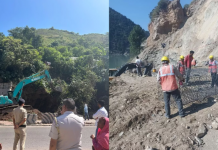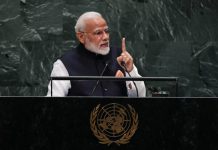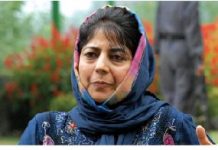Making life convenient for one and all is the key to overall development and growth of a family, locality, country, or the world. Measures and reforms aimed at uplifting individuals in disadvantaged positions go a long way in adding to peace and prosperity. Among other deprived individuals, disabled people — who continue to struggle to secure employment and navigate their way around with poor infrastructure and are still treated as “others” — need more attention and care. India, where around 2.21 per cent of the total population is incapacitated, is making efforts — both at the Centre and state-level — to provide equal rights along with better facilities and opportunities to the special people.
 The Odisha government, for example, has initiated steps to empower disabled persons with skills, acumen and entitlements, so that they can be employed to eventually become economically stable. For recruiting the disabled persons, the employer’s contribution towards the ESI and the EPF for five years would be borne by the state government. Punjab too has come up with new schemes on the same lines. Few other states are also reportedly trying to make the implementation of “Rights of Persons with Disability (RPWD) Act, 2016 a success.
The Odisha government, for example, has initiated steps to empower disabled persons with skills, acumen and entitlements, so that they can be employed to eventually become economically stable. For recruiting the disabled persons, the employer’s contribution towards the ESI and the EPF for five years would be borne by the state government. Punjab too has come up with new schemes on the same lines. Few other states are also reportedly trying to make the implementation of “Rights of Persons with Disability (RPWD) Act, 2016 a success.
But majority of the state governments do not seem to take right to dignity for people suffering from disability seriously. The recent scolding from the Supreme Court makes it more evident.
Last year, the apex court had directed all the states to provide proper and safe access to roads, transport, buildings and public places to differently-abled persons by June 2019 as per provision of the RPWD Act. Only six states and two union territories have so far filed their status reports in the matter.
Even the entities that come under the Central government, in general, have loopholes when it comes to serving people with disability.
The railways, for example, provides wheelchairs to differently-abled persons at the station. But they are of no use to 50 lakh visually-impaired people of the country. The Delhi High Court, while hearing a case, rightly pointed out that a visually or speech impaired person does not require a wheel chair as they walk themselves but need human assistance.
Women and girls with disabilities in India, according to the latest Human Rights Watch report, are at a higher risk of sexual violence. And the challenges faced by its survivors to get justice are even greater.
Nidhi Goyal, one of the authors of the 61-page report “Invisible Victims of Sexual Violence: Access to Justice for Women and Girls with Disabilities in India”, said the infrastructure in the country is not friendly for a person with a disability and being a woman adds an additional layer of difficulty.
The recent gangrape of a physically challenged Dalit woman in Vijayanagaram district of Andhra Pradesh is just one of the many cases. The woman was going to her sister’s house in a three-wheeler when the auto driver, accompanied by two other men, took the victim to an isolated place and violated her.
The only good thing amid all the recent developments is that the general public and judiciary are assuring that right to dignity, which is ensured in the constitutional set up for every citizen, is applied with much more vigour in cases of persons suffering from disability.
If the RPWD Act, 2016 — which recognises 21 kinds of disabilities compared to the previous seven, including dwarfism, speech and language disability, and three blood disorders — is properly implemented, India will become a better place for special people.












